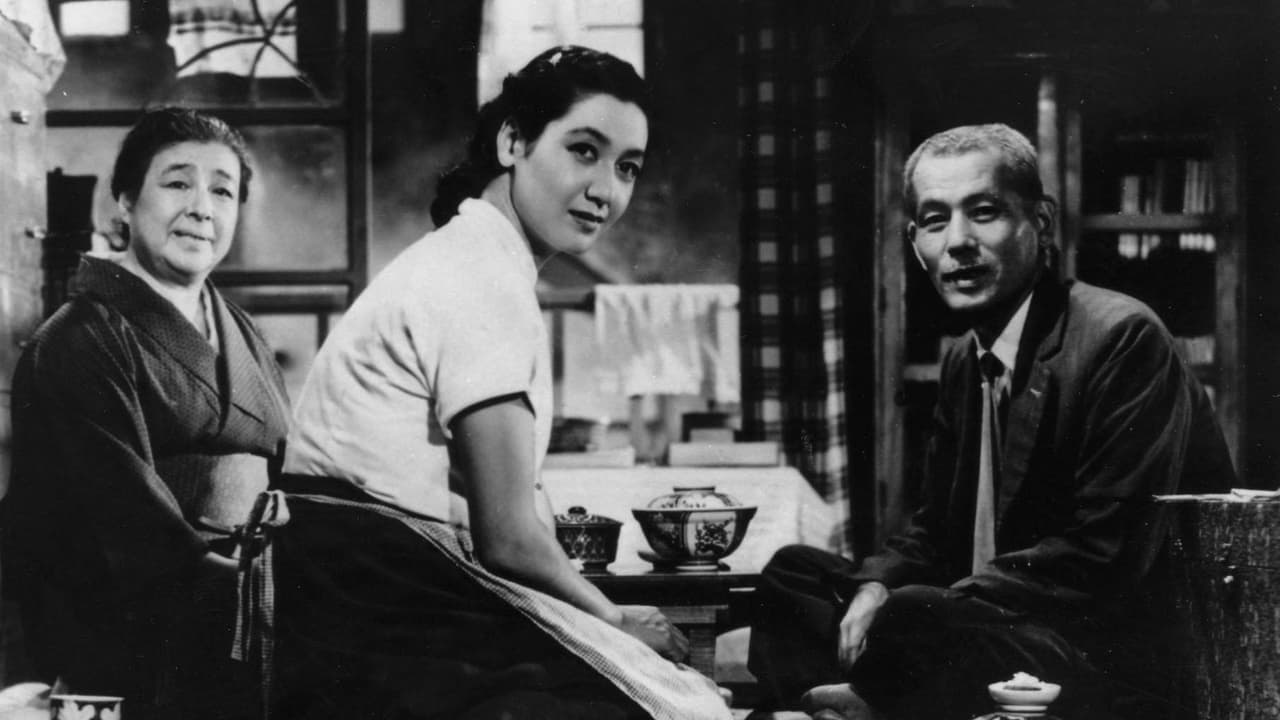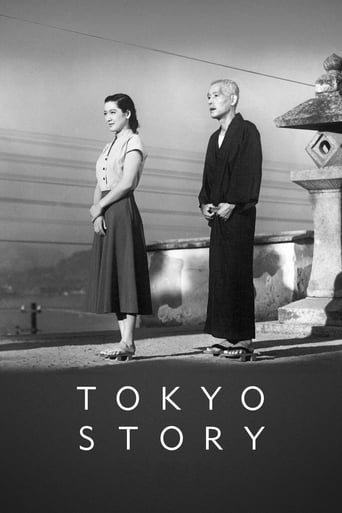

An action-packed slog
... View MoreA lot of fun.
... View MoreThe best films of this genre always show a path and provide a takeaway for being a better person.
... View MoreThe movie really just wants to entertain people.
... View MoreIt seemed strange to me that this film was rated 8.2 at IMDb when the scenes began so slowly and tediously. However, eventually, I agree with such a high rate. Even though there are not so many actors in the film, I felt as if each of them showed a certain aspect of myself. I gave 10. And, now I understood why Aki Kaurismaki follows Yasujiro Ozu's style.
... View MoreI don't know if it has to do with some of the translation into English, but some of the dialog in this film seems to me to be plainly offensive. For example, when the old woman Tomi Hirayama (Chieko Higashiyama) speaks to her daughter-in-law Noriko (Setsuko Hara), who's husband, the older woman's son, had died, she makes the remark "What a treat to sleep in my dead son's bed". What??!! I thought that was terribly insensitive.Or when the family members discuss the mother's passing, Shige (Haruko Sugimura) states that she wishes the old man had died first. She qualified her statement with a logical reason, but gee, that just sounded so awful bad, but in her case, Shige had already established that she wasn't very politically correct among her family members.And then there's the old man himself, Shukichi (Chishû Ryû), who attempts to convince his daughter-in-law Noriko to remarry. With seeming indifference to the death of his own son a year earlier, he says "Forget about Shoji, he's dead." Do you think Noriko had to be reminded of that depressing fact? I know this, a movie is getting to me when I have to get up and pace around the room in order to force myself to stay with it. I pretty much understand what the director was trying to achieve here by showing the indifference siblings can show toward their elderly parents. How they'd rather not be bothered unless there's something in it for them. And obviously I'm at a disadvantage by not knowing the Japanese culture and it's approach to the concept of dying. But this just didn't strike me as being the noteworthy film it's hailed to be with it's position in the IMDb rating system. Sometimes I find a second viewing of a film to help with my appreciation of the effort, but this one I'll be giving a pass.One final observation - what's the obsession with fanning one's self throughout the picture?
... View MoreIf there were ever a film to define the phrase "Less is more" it would be Tokyo Story. It's so simple yet I find it unbelievably compelling and moving. This is mainly thanks to the nuances of the cast that portray so much emotion. For example, Chishu Ryu's subtle performance conveys everything. In a scene where he is plainly nodding, deep down inside you can feel all the sadness and pain he is feeling and it hits you hard. Ozu also never makes the film feel overly sentimental with earned emotional moments and explores the human condition so beautifully. A true masterpiece of cinema.
... View MoreAn elderly couple head to Tokyo to spend a few days with their children and grandchildren. While their children are initially glad to see them, and the parents are models of patience and pleasantness, the novelty wears off pretty quickly for the children and they soon view the parents as a hindrance more than anything else. Then an event highlights the divide between the two generations...Engaging and emotional drama from famed Japanese director Yasujiro Ozu. It wasn't always looking like it was going to be that great though. While always engaging, the pace is very slow at the beginning. The first 60% or so is all scene-setting - Act 1 essentially. Things ramp up once the aforementioned event occurs, and this makes the wait worth while.Quite emotional, ultimately, and quite balanced in its views. It looked like it was going to be fairly judgmental in its observations, but the final few scenes add a different perspective. Having a character that was able to see both sides of the issue helped a lot.Not quite the masterpiece it is made out to be, but very good nevertheless.
... View More